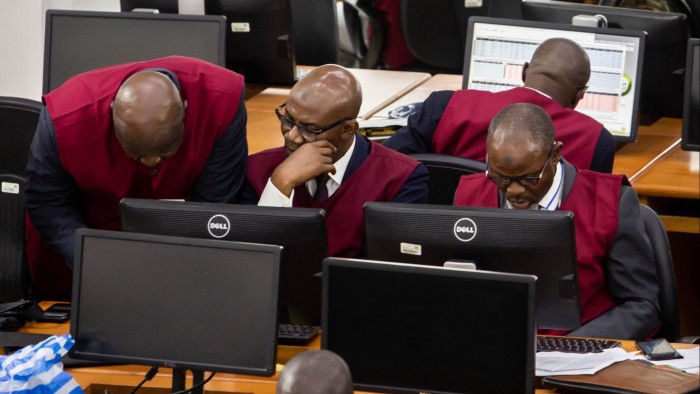Africa’s stocks, bonds and currencies are leading the hottest streak for emerging markets in years after record metals prices, a weaker US dollar and painful economic and currency reforms paid off for the continent’s investors.South African, Nigerian, Kenyan and Moroccan stocks have returned at least 40 per cent this year in US dollar terms, ahead of a 31 per cent dollar gain for an MSCI emerging-market share gauge that is itself the strongest since 2017.This year’s $5tn boost in the MSCI benchmark’s market value to $26tn has been dominated by Asian chipmaker and technology shares as part of the global frenzy for artificial intelligence stocks.Yet the rising concentration of these bets has led some investors to call for diversifying into markets that were on the global sidelines for most of the past decade, but which boast old-fashioned, emerging-market exposure to commodity, consumer and banking stocks.“You have really had a new dawn for Africa, with the main tailwind being strong commodity prices” along with the fading of a series of defaults and devaluations since 2022, said James Johnstone, co-head of emerging and frontier markets at Redwheel.“We think that the world is very fully invested in digital assets and the diversification that comes from real assets [such as African commodity stocks] is becoming a more important part of people’s portfolios,” Johnstone said.The biggest overall percentage gains have been in smaller African markets that were grappling with financial collapse and runaway inflation just a few years ago, and this year faced US trade barriers and the withdrawal of aid.Ghana’s and Zambia’s stock markets have more than doubled in US dollar terms as prices for gold and copper, their biggest exports, hit records this year and lifted their recovery from debt defaults earlier this decade.Farouk Miah, investment manager at All Africa Partners, a London-based asset manager, said:

“The global market is seeing that these markets are putting in place reforms that are yielding results and translating to stable FX and equities doing well.”The Ghanaian cedi, Zambian kwacha and Congolese franc are up by a quarter to a third against the dollar this year in spot terms, behind only the Russian rouble in global currency rankings. Annual inflation in Zambia fell to the lowest in more than two years this month, at just below 12 per cent, while Ghana’s inflation rate has dropped into single digits.

The Nigerian naira has been stable for more than a year after wild oscillations to record lows last year, following two devaluations that plunged its value more than 70 per cent against the dollar.The dollar debts of African governments have also rallied this year with most now trading at yields of less than 10 per cent, a level that makes new borrowing prohibitively expensive.Kenya and Angola recently sold bonds to refinance debts that had looked difficult to roll over last year. Senegal is the biggest quandary for debt investors, as the West African nation is in talks with the IMF over the fallout from a hidden loan scandal, with its bond yields at about 13 per cent.South African and Nigerian domestic government bonds have outperformed the 16 per cent gain in a JPMorgan index of local currency emerging-market debt this year that has also been the best in years.



